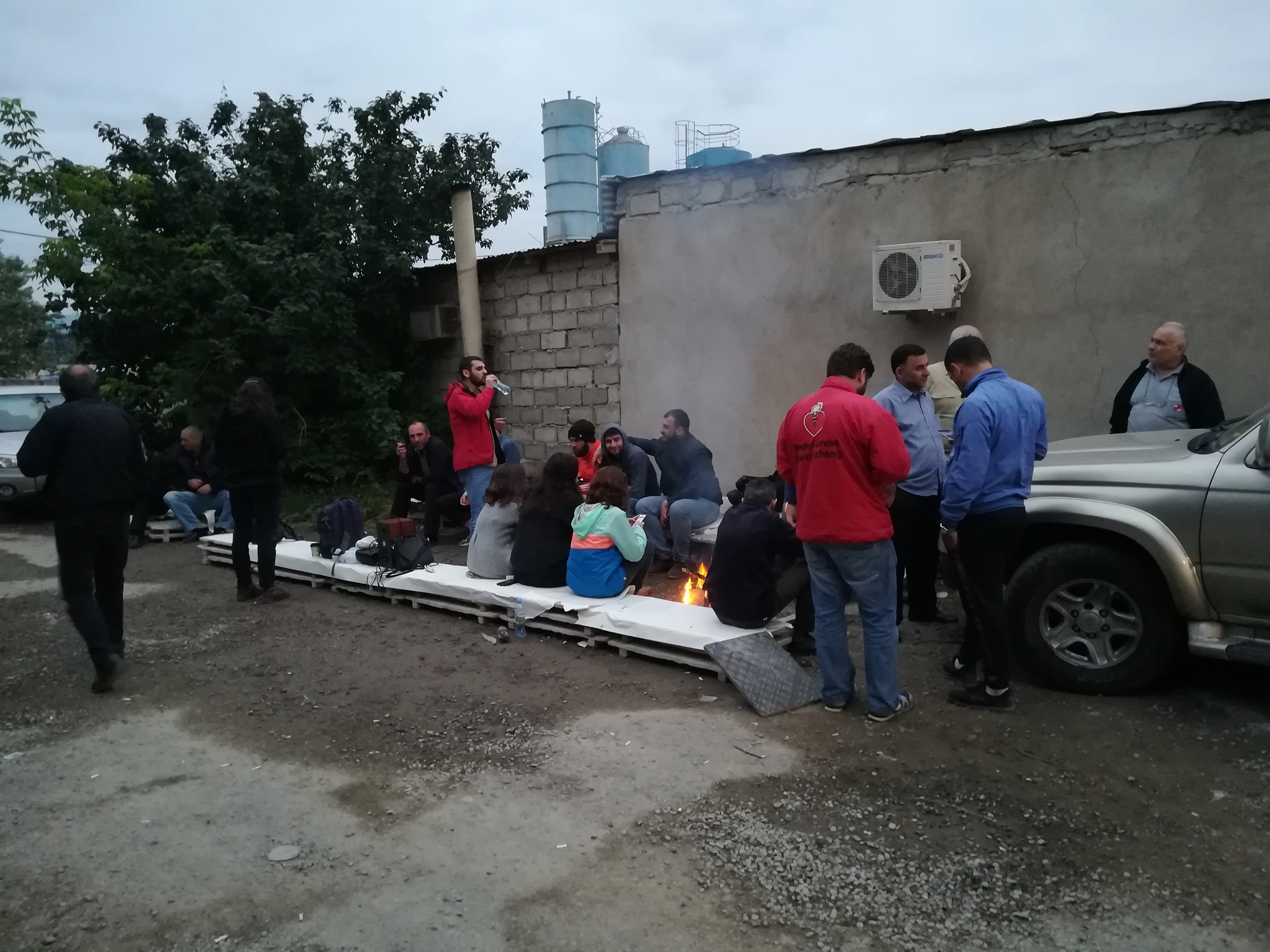Tbilisi metro not running - mayor against train drivers
On 3 June Tbilisi metro drivers started a large-scale strike demanding higher salaries.
All metro stations were closed in the morning – passengers were ‘welcomed’ with an announcement that read: “The metro is closed, make use of buses instead. The journey is free.”
Because of the halt in services, movement around the city has become difficult. People line up in queues at bus stops. Because of traffic congestion, buses often do not stop at all.
What do the drivers want?

There are currently 250 drivers employed at the Tbilisi metro, and they are paid per hour. Each driver works 6-8 hours per shift and earns GEL 6.92 (USD 2.80) per hour. The drivers consider it to be a very low amount considering the conditions they work in and responsibility associated with their jobs, and thus demand a pay increase of 45% – up to GEL 10 (about USD 4) per hour.
Mayor of Tbilisi: The drivers already receive higher salaries than others
Kakha Kaladze, the Mayor of Tbilisi, has spoken at a special briefing this morning and said that the strike ‘is directly aimed at worsening people’s lives’, and that the mayor’s office is not planning to satisfy their demands.
Kaladze’s main argument is that ‘the drivers’ salaries (before tax deductions) amounts to GEL 1400-1800 (USD 560-730) and far exceeds that of teachers, emergency doctors, patrol policemen and firefighters’ (although the drivers themselves say the opposite).
“Why should we raise their salaries and not those of others?” asked the mayor, showing documents to journalists which indicated the salary of the drivers.
According to Kaladze, the drivers have demanded to raise their salaries by increasing travel fares.
“I, as the Mayor of Tbilisi, will not allow an increase in the salaries of governmental structures by increasing fees or decreasing social subsidies,” Kaladze said.
As a temporary solution to the situation, Kaladze promised to increase the number of buses running.
Drivers say that the mayor is lying
In an interview with Netgazeti, the strikers said that Kaladze gave incorrect information several times on purpose to pit society against the drivers.
* First: According to the drivers, they receive up to GEL 1 150 lari (about USD 460) and not GEL 1400-1600 as Kaladze said.
“We never demanded a salary of GEL 1 600. If Kaladze is promising 1 500, we will stop the strike today,” says Rati Kapanadze, the head of the Ertoba 2013 drivers’ association. He showed the journalists a bank statement indicated that he only receives a salary of GEL 1 150. Similarly, other drivers receive GEL 1 120, 1 103 and 1 189 respectively.
“If we had a salary of 1 800 lari and we asked a n increase of 45% people would go crazy. We demand that our salaries be increased to 1 500 lari (about USD 600),” the drivers say.
• Second: Drivers say that ‘Kaladze’s second lie’ is concerning their demands. Drivers argue that they have never demanded an increase in travel fares, and it is in fact the representatives of the mayor’s office and the transport company themselves who began to talk about it.
“This form of public transport is used by our relatives and family members, why would we demand an increase in travel fees? They are trying to pit us against society,” the drivers said [As of now, a 90 minute journey on Tbilisi’s public transport, including metro and buses, costs 50 tetri (about USD 0.20)].
According to them, the mayor’s office is trying to pit people against them by comparing the wages of drivers with the salaries of people of other professions.
“In fact, we demand that the salaries of the other people who work in the subway also be raised. That includes hawkers, station attendants and so on. Some of them receive 150, 300 or 400 lari (about USD 60, 120 and 160),” the drivers said.
Before the strike, the drivers were interviewed by JAMnews wherein they noted that the working conditions of subway workers are particularly severe: they spend half their lives underground where there is noise, dust, heavy vibration and a shortage of air. The concentration of iron in the air and the effects of electromagnetic radiation are also dangerous to their health. The further said that, because of these hard working conditions, 60% of them do not live past retirement age.
As an example of the inequality in the payment of labor, the drivers referred to the salary of the head of the Tbilisi Transport Company who receives GEL 10 thousand (about USD 4 thousand) per month.



















